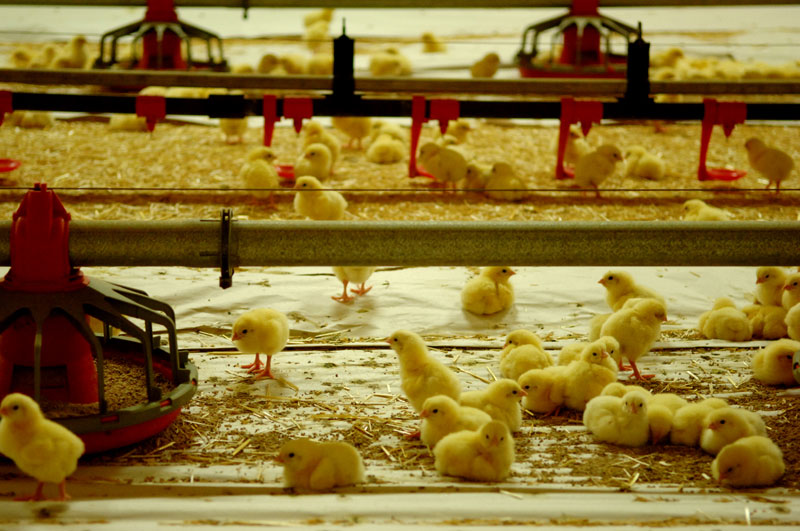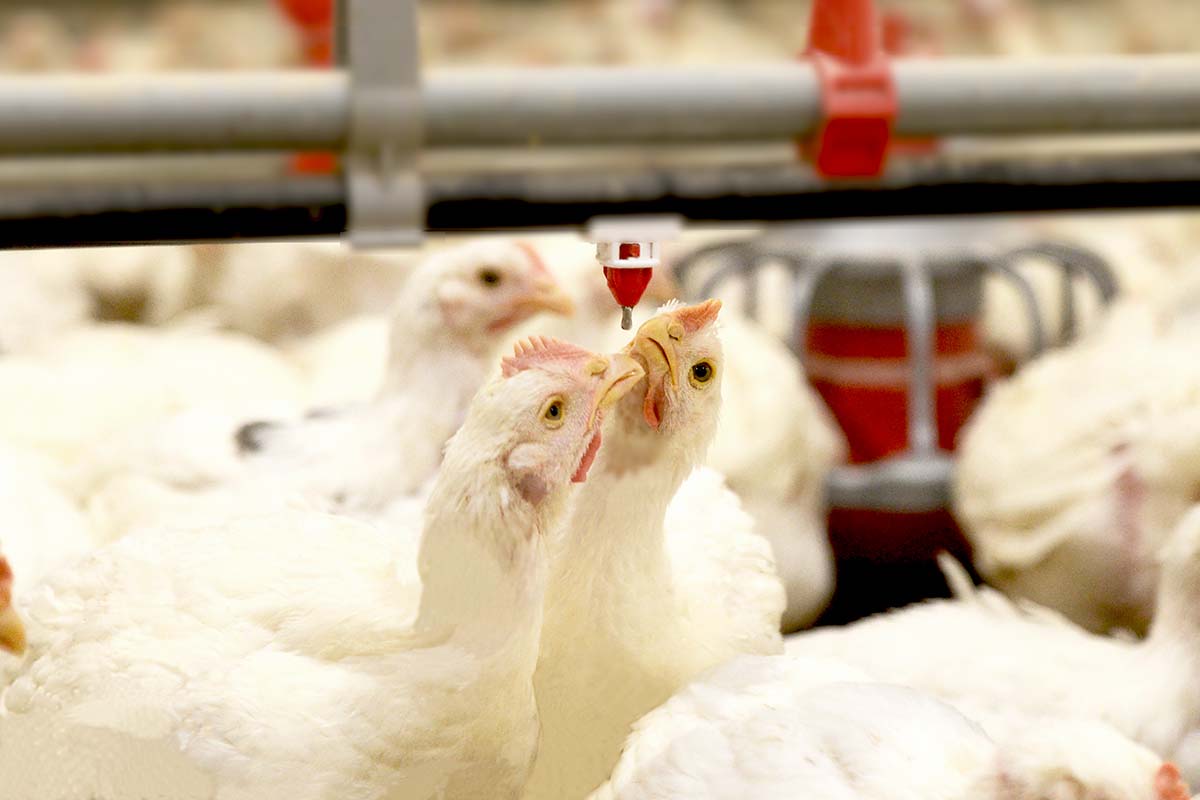Understanding Breeder Chicken Farms
Breeder chicken farms play a crucial role in the poultry industry. These farms are dedicated to raising and maintaining breeder chickens, which are essential for producing fertile eggs. The primary objective of a breeder farm is to ensure a high-quality gene pool and optimal production rates, ultimately supporting the broiler poultry farm operations.
Key Aspects of Breeder Chicken Farms
Breeder farms require meticulous management and strict adherence to best practices to maintain productivity and health. Factors such as biosecurity, nutrition, and breeding techniques are critical in achieving these goals.
Biosecurity Measures
Maintaining biosecurity is paramount in breeder chicken farms. This involves implementing stringent protocols to prevent the introduction and spread of diseases. Measures include:
- Controlled Access: Limiting farm access to essential personnel only.
- Sanitation Protocols: Regular cleaning and disinfection of facilities, equipment, and vehicles.
- Health Monitoring: Routine health checks and vaccinations for breeder chickens to prevent outbreaks.
Nutrition and Feed Management
Optimal nutrition is vital for the health and productivity of breeder chickens. A balanced diet ensures proper growth, egg production, and overall well-being. Key components include:
- Quality Feed: Providing high-quality feed with the right balance of proteins, vitamins, and minerals.
- Feeding Schedule: Implementing a consistent feeding schedule to promote regular egg production.
- Water Supply: Ensuring a constant supply of clean and fresh water.
Breeding Techniques in Poultry Farms
Breeding techniques in poultry farms are designed to enhance genetic quality and production efficiency. These techniques involve careful selection and mating of breeder chickens to produce high-yield offspring.
Selection of Breeder Chickens
Selecting the right breeder chickens is a critical step. This involves evaluating various factors such as:
- Genetic Traits: Choosing chickens with desirable traits like good health, high egg production, and disease resistance.
- Physical Characteristics: Selecting chickens with strong physical attributes, including robust body structure and feather quality.
Mating Strategies
Effective mating strategies ensure the production of fertile eggs and high-quality offspring. Common strategies include:
- Natural Mating: Allowing breeder chickens to mate naturally in a controlled environment.
- Artificial Insemination: Using artificial insemination techniques to ensure genetic diversity and high fertility rates.
Broiler Breeder Farm Operations

Broiler breeder farms are specialized in producing broiler chicks for meat production. These farms follow specific processes to maintain productivity and efficiency.
Housing and Environment
Proper housing and environmental management are essential for the welfare of broiler breeders. Key considerations include:
Housing Facilities
Providing adequate housing facilities ensures the comfort and health of broiler breeders. Important features are:
- Ventilation: Ensuring proper ventilation to maintain air quality and temperature.
- Lighting: Implementing appropriate lighting schedules to regulate the breeding cycle.
Environmental Control
Controlling the environment helps in preventing stress and promoting health. This includes:
- Temperature Regulation: Maintaining optimal temperature levels to support growth and egg production.
- Litter Management: Regularly changing litter to prevent disease and maintain cleanliness.
Egg Collection and Incubation
Efficient egg collection and incubation processes are crucial for the successful production of broiler chicks.
Egg Collection
Timely and careful collection of breeder eggs ensures high hatchability rates. Key practices include:
- Frequent Collection: Collecting eggs multiple times a day to prevent contamination and damage.
- Proper Handling: Handling eggs gently to avoid cracks and maintaining cleanliness.
Incubation Process
The incubation process involves creating the right conditions for eggs to hatch. This includes:
- Temperature and Humidity Control: Maintaining precise temperature and humidity levels throughout the incubation period.
- Turning Eggs: Regularly turning eggs to ensure uniform development and prevent deformities.
Best Practices in Broiler Farming

Adopting best practices in broiler farming ensures high productivity and profitability. These practices cover various aspects of farm management.
Health and Disease Management
Maintaining the health of broiler chickens is essential for sustainable farming. Key practices include:
Vaccination Programs
Implementing effective vaccination programs helps in preventing common diseases. This involves:
- Scheduled Vaccinations: Administering vaccines at appropriate stages of the broiler’s life cycle.
- Monitoring: Regularly monitoring the health of broilers to detect and address any issues promptly.
Hygiene and Sanitation
Maintaining hygiene and sanitation on the farm prevents the spread of diseases. This includes:
- Cleaning Protocols: Regular cleaning of housing facilities and equipment.
- Biosecurity Measures: Implementing strict biosecurity measures to limit disease transmission.
Feeding and Nutrition
Providing balanced nutrition is vital for the growth and health of broilers. Important practices are:
Quality Feed
Ensuring the availability of high-quality feed promotes optimal growth. Key elements include:
- Nutrient-Rich Diet: Providing a diet rich in proteins, vitamins, and minerals.
- Consistent Feeding: Maintaining a consistent feeding schedule to support growth.
Water Management
Providing clean and adequate water is essential for broiler health. Practices include:
- Regular Supply: Ensuring a constant supply of fresh water.
- Clean Water Systems: Regularly cleaning water systems to prevent contamination.
Sustainable Practices
Adopting sustainable practices helps in maintaining environmental balance and farm profitability.
Waste Management
Effective waste management practices reduce environmental impact. This includes:
- Composting: Using poultry waste for composting to enrich soil fertility.
- Recycling: Recycling farm waste materials to minimize pollution.
Energy Efficiency
Implementing energy-efficient practices reduces costs and supports sustainability. Key practices are:
- Renewable Energy: Using renewable energy sources like solar power.
- Energy-Saving Equipment: Investing in energy-efficient equipment to reduce consumption.
Conclusion
Understanding the processes and best practices in breeder chicken farms is essential for maintaining productivity and sustainability. By focusing on biosecurity, nutrition, breeding techniques, and efficient farm management, breeder farms can ensure the production of high-quality broiler chickens and eggs. Adopting these best practices not only enhances farm operations but also contributes to the overall success of the poultry industry.

